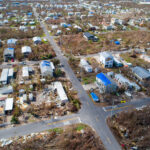Major economies competing to restore export-led growth are stealthily imposing more protectionist measures than at any time since the financial crisis began, a leading trade monitoring group said in a report seen by Reuters on Wednesday.
The findings, to be published on Thursday, appeared to underline fears voiced by World Trade Organization chief Pascal Lamy, when he said in April the threat of protectionism “may be greater now than at any time since the start of the crisis.”
The publication of the Global Trade Alert (GTA) report by independent economists, led by Simon Evenett at St Gallen University in Switzerland, is intended to inform debate at next week’s G8 summit in Britain.
The British government has promised to make combating protectionism a priority for the G8.
Evenett called on the group to go beyond the usual “soothing comments” and launch an initiative to unwind protectionism.
Based on initial tallies, which are usually revised upwards as more policies come to light, there were more protectionist measures in the last three months of 2012 and first three months of 2013 than in any period since GTA began monitoring in 2009.
“The past 12 months have seen a quiet, wide-ranging assault on the commercial level playing field,” the report said.
Of 431 protectionist measures in the year to May 2013, G8 nations were responsible for 131 of them, or 30 percent. The BRICS nations had a similar footprint, with 132 measures.
For the wider G20 group of the largest economies, the figure rose to 65 percent.
CHINA HIT MOST OFTEN
Unlike the WTO, which relies on its 159 member countries to challenge apparent breaches of the trade rules, GTA casts its net wider, assessing policies on how they affect the competitive balance between domestic and foreign companies.
The GTA report said governments were increasingly finding ways to fly under the WTO radar, engaging in a “cat and mouse game” to give their own companies a leg-up without getting caught.
“They used the wiggle room in existing rules and, if that wasn’t enough, employed policies not well disciplined by multilateral trade rules,” the report said.
The study also found that trade policies had shifted from bailouts toward the more traditional defenses seen in recessions, such as anti-dumping duties, anti-subsidy measures and emergency tariffs to safeguard particular industries.
Since November 2008, when a G20 summit in Washington vowed to eschew protectionism as a response to the financial crisis, China’s commercial interests have been hit almost 1,000 times by foreign protectionism, making it the most frequently harmed nation, according to GTA data.
“In terms of discriminatory measures imposed, number of economic sectors affected, and number of trading partners harmed, the EU-27 is the worst offender,” according to the GTA.
In terms of tariff lines affected, Vietnam was ranked worst for “repeated, transparent competitive currency devaluations”.
The greatest number of trade policies harming U.S. interests since the crisis began came from Russia, with 81 harmful policies, more than the combined total of China and India.
For Russia, which has had simmering trade tensions with the European Union since it joined the WTO last August, the most harm came from a surprise quarter, Belarus, a country with which it shares a customs union that aims to foster trade links.
(Editing by Stephanie Nebehay and Mike Collett-White)
Was this article valuable?
Here are more articles you may enjoy.


 Chubb to Acquire MGA Healthy Paws From Aon
Chubb to Acquire MGA Healthy Paws From Aon  4,800 Claims Handled by Unlicensed Adjusters in Florida After Irma, Lawsuit Says
4,800 Claims Handled by Unlicensed Adjusters in Florida After Irma, Lawsuit Says  South Carolina Ringleader Sentenced to 8 Years for Staged Accidents
South Carolina Ringleader Sentenced to 8 Years for Staged Accidents  FBI Says Chinese Hackers Preparing to Attack US Infrastructure
FBI Says Chinese Hackers Preparing to Attack US Infrastructure 

